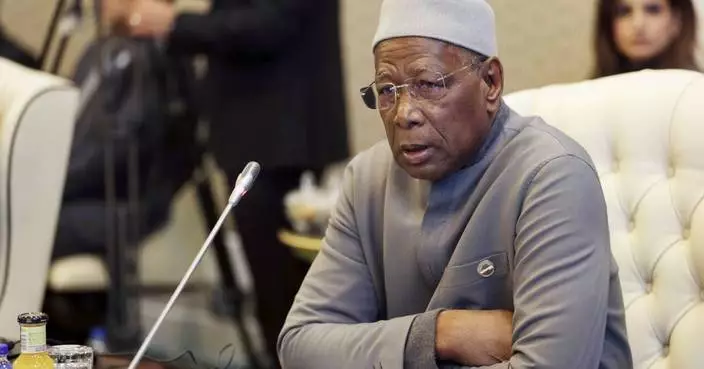A spokesman for one of Libya's rival factions has said its forces will keep fighting for the country's capital after Russia and Turkey called for a ceasefire yesterday.
Spokesman for the self-styled Libyan Arab Armed Forces Ahmed al-Mosmari said in a video statement late Thursday that group's battalions will still try to take control of country's capital Tripoli from ‘terrorist groups.' The armed forces, led by ex-general Khalifa Hifter, have been waging an offensive to try to take the city for months. Russia has helped them with expertise and mercenary fighters.
Both Russia and Turkey have been accused of exacerbating the conflict by giving military aid to its parties. Most recently, the Turkish parliament approved last week the deployment of troops to fight on behalf of the United-Nations supported government in Tripoli.
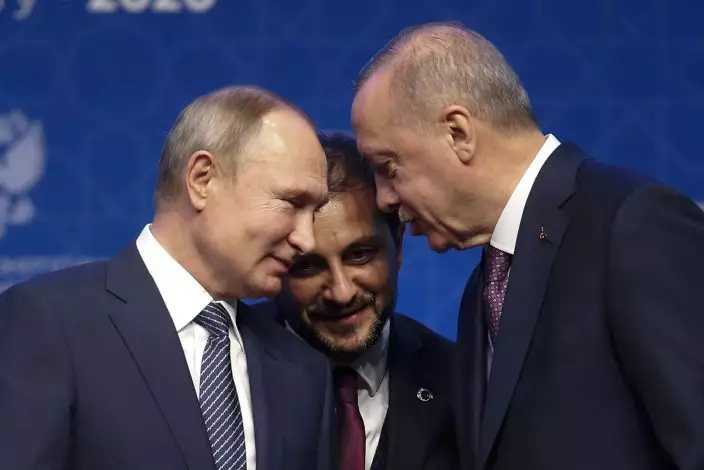
Turkey's President Recep Tayyip Erdogan, right and Russia's President Vladimir Putin, left, talk during a ceremony in Istanbul for the inauguration of the TurkStream pipeline, Wednesday, Jan. 8, 2020. Man in the centre is an interpreter. The Turkish and Russian presidents called for a cease-fire in Libya, starting midnight Jan. 12, their foreign ministers said. Turkey is supporting the embattled U.N.-recognised government in Tripoli and has begun sending Turkish soldiers for training and coordination, while Russia has backed the rival eastern-based forces of Gen. Khalifa Hifter. (AP PhotoLefteris Pitarakis)
The U.N.-backed government, led by Prime Minister Fayez Sarraj, meanwhile, welcomed the proposed ceasefire. It released a statement late Wednesday expressing its full support for “the resumption of the political process and the elimination of the specter of war."
Libya is currently governed by dueling authorities in the east and in the west. The east-based government is backed by the self-named Libyan Arab Armed Forces, commanded by Hifter. It is supported by the United Arab Emirates and Egypt, as well as France and Russia. The western, Tripoli-based government receives aid from Turkey, Qatar and Italy. Both sides are bolstered by militias which draw from the country's tribal factions.
Turkish President Recep Tayep Erdogan and his Russian counterpart Vladimir Putin released a joint statement after a meeting in Istanbul calling for a Jan. 12 truce. They did not specify what the conditions would be.
Clashes have continued between the two sides this week. Fawzy Onis, a health ministry spokesman with the Tripoli-based government, said artillery shelling by Hifter's forces killed two paramedics on Thursday near the coastal city of Sirte. Hifter's forces recently seized the town.
Observes say the Turkish-Russian suggestion to stop the fighting was unlikely to gain traction with the forces fighting for the country's eastern government, because it would mean having to sacrifice recent advances they've made towards Tripoli. But the meeting between the two powers could show an intent to not worsen the violence.
“If Turkey can assure that some military aid helping Hifter is withdrawn, there is no longer a need for Turkey to deploy massively," said Claudia Gazzini, a senior analyst with the International Crisis Group in Rome.
The calls for a stop to the fighting came amid a flurry of diplomatic activity by European powers. After a meeting with the Algerian President Abdelmadjid Tebboune on Thursday, Italy's Foreign Minister Luigi Di Maio wrote on his Facebook page that the E.U. must “work together with the countries neighboring Libya to find a solution to the present crisis, which at the moment sees in the cease-fire our principal aim.”
The Turkish decision to send reinforcements to Tripoli has elicited condemnation from European governments including Italy, Sarraj's main European backer.
According to the U.N., more than 200 civilians have been killed and more than 128,000 people have fled their homes since the conflict escalated in early April of last year amid Hifter's push towards the capital. The fighting has threatened to plunge Libya into violent chaos rivaling the 2011 conflict that ousted and killed longtime dictator Moammar Gadhafi.
Frances D'Emilio in Rome contributed to this report
Forced to hide her true self, Joe Horras’ transgender daughter struggled with depression and anxiety until three years ago, when she began to take medication to block the onset of puberty. The gender-affirming treatment helped the now-16-year-old find happiness again, her father said.
A decision by the U.S. Supreme Court late Monday allowing Idaho to enforce its ban on such care for minors could jeopardize her wellbeing once again. Horras is scrambling to figure out next steps and is considering leaving Idaho, where he's lived his whole life, to move to another state.
"It would be devastating for her," Horras, who lives in Boise, told The Associated Press. “If she doesn’t have access to that, it will damage her mental health."
Horras is among the Idaho parents desperate to find solutions after their trans children lost access to the gender-affirming care they were receiving. The U.S. Supreme Court's decision allows the state to put in place a 2023 law that subjects physicians to up to 10 years in prison if they provide hormones, puberty blockers or other gender-affirming care to people under age 18. A federal judge in Idaho had previously blocked the law in its entirety.
The ruling will hold while lawsuits against the law proceed through the lower courts, although the two transgender teens who sued to challenge the law will still be able to obtain care.
At least 24 states have adopted bans on gender-affirming care for minors in recent years, and most of them face legal challenges. Twenty of those states besides Idaho are currently enforcing the bans.
Monday’s ruling was the first time the U.S. Supreme Court waded into the issue. The court’s 6-3 ruling steered clear of whether the ban itself is constitutional. Instead, the justices went deep into whether it’s appropriate to put enforcement of a law on hold for everyone, or just those who sue over it, while it works its way through the courts.
In his concurring opinion, Justice Neil Gorsuch said “lower courts would be wise to take heed” and limit use of “universal injunctions” blocking all enforcement of laws that face legal challenges. In a dissent, Justice Ketanji Brown Jackson said the court should not decide the fate of those actions without reading legal briefs and hearing arguments on the issue.
Rights groups in Idaho are supporting families to make sure they're aware the measure has taken effect. The American Civil Liberties Union of Idaho said it plans to hold a virtual event over Zoom with licensed counselors and legal experts to help people process the shock and answer any questions they may have about the law.
“Yesterday was really just an outpouring of fear, questions, people trying to figure out how this is going to affect them personally,” said Jenna Damron, the group's advocacy fellow. “Getting information out quickly that is accurate is kind of our first priority.”
Paul Southwick, legal director for ACLU of Idaho, said the group wants families to know what their options are.
“Gender-affirming medical care is now immediately illegal for minors in the state of Idaho. However, care remains legal for adults, and it’s also legal for minors to seek gender-affirming medical care out of state,” he said.
In Boise, Horras' 16-year-old daughter wears an estrogen patch and receives estrogen injections every six months. Her last shot was in December and Horras now has two months to find a new out-of-state provider who can continue administering the medication. The situation has left him feeling scared, he said, and angry toward the state politicians who passed the law last year.
“It's cruel,” he said.
Advocates, meanwhile, worry that lower-income families won't be able to afford to travel across state lines for care. Arya Shae Walker, a transgender man and activist in the small city of Twin Falls in rural southern Idaho, said he was concerned that people would alter the doses of their current prescriptions in order to make them last longer. His advocacy group has already taken down information on its website on gender-affirming care providers for young people in the area out of concern of potential legal consequences.
The broader issue of bans on gender-affirming care for minors could eventually be before the U.S. Supreme Court again. Last year, a ban on gender-affirming care for minors in Arkansas was shot down by a federal judge, while those in Kentucky and Tennessee were allowed to be enforced by an appeals court after being put on hold by lower-court judges. Montana’s law is not being enforced because of a ruling from a state judge.
Laws barring transgender youth from playing on sports teams that align with their gender identity are also being challenged across the country. An appeals court on Tuesday ruled that West Virginia’s transgender sports ban violates the rights of a teen athlete under Title IX, the federal civil rights law that prohibits sex-based discrimination in schools. Hours later, an Ohio law that bars transgender girls from girls scholastic sports competitions was put on hold by a judge. Set to take effect next week, the law also bans gender-affirming care for transgender youth.
Those who support the bans say they want to protect children and have concerns about the treatments themselves.
Gender-affirming care for youth is supported by major medical organizations, including the American Medical Association, the American Academy of Pediatrics and the American Psychiatric Association. However, England is limiting the ability of people younger than 16 to begin a medical gender transition.
The National Health Service England recently cemented a policy first issued on an interim basis almost a year ago that sets a minimum age at which puberty blockers can be started, along with other requirements. NHS England says there is not enough evidence about their long-term effects, including “sexual, cognitive or broader developmental outcomes.”
Medical professionals define gender dysphoria as psychological distress experienced by those whose gender expression does not match their gender identity. Experts say gender-affirming therapy can lead to lower rates of depression, suicidal thoughts and suicide attempts among transgender people.
Chelsea Gaona-Lincoln, executive director of Idaho-based advocacy group Add The Words, said she's anticipating “a pretty horrendous ripple effect.” But seeing her community uniting in support has given her a glimmer of hope.
“There are people coming together, and it’s so important, for especially our youth, to feel seen and affirmed as they are," she said.
Southwick, the legal director of ACLU of Idaho, said the 9th U.S. Circuit Court of Appeals is expected to hold a hearing this summer on its lawsuit challenging the law.
Associated Press writer Geoff Mulvihill in Cherry Hill, New Jersey, contributed.
This story was first published on April 16, 2024. It was updated on April 18, 2024, to make clear that the 20 states enforcing bans on gender-affirming care for minors are in addition to Idaho and all are among the 24 that have passed laws imposing the bans.
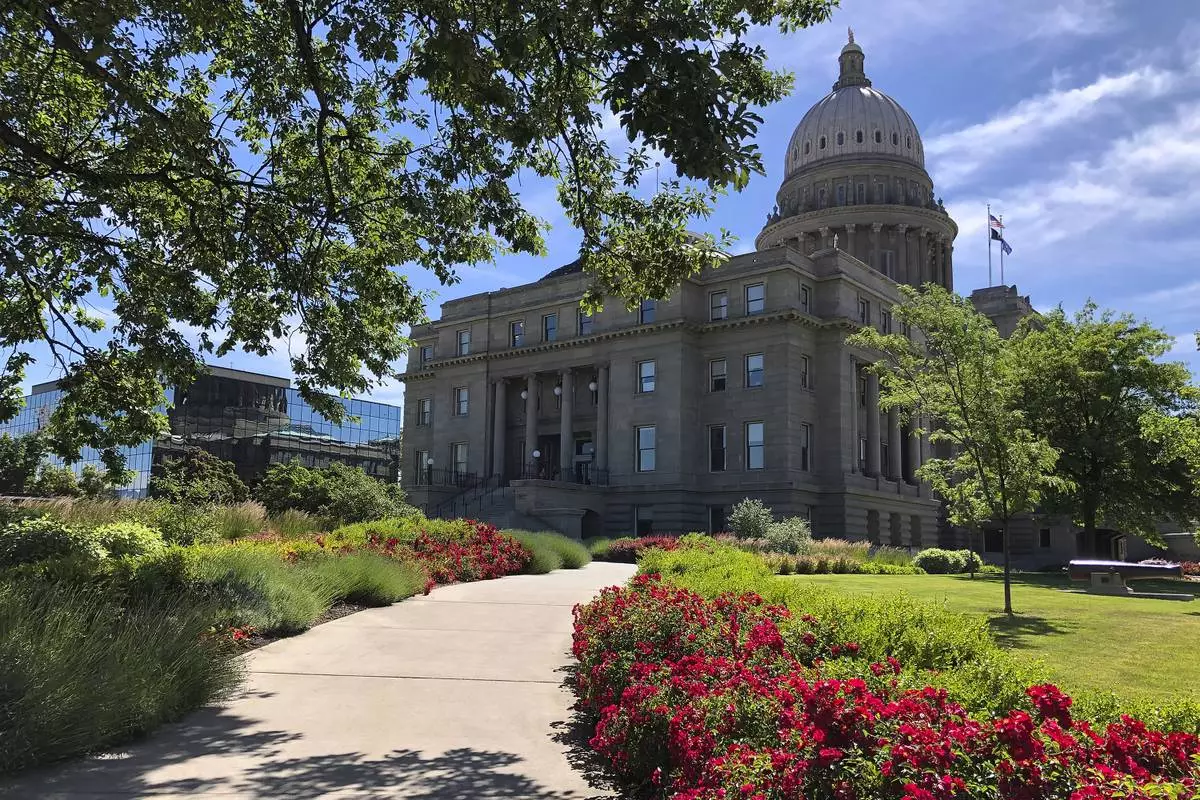
FILE - The Idaho State Capitol in Boise, Idaho, is seen on June 13, 2019. The U.S. Supreme Court's decision on Monday, April 15, 2024, allows the state to put in place a 2023 law that subjects physicians to up to 10 years in prison if they provide hormones, puberty blockers or other gender-affirming care to people under age 18. A federal judge in Idaho had previously blocked the law in its entirety. (AP Photo/Keith Ridler, File)
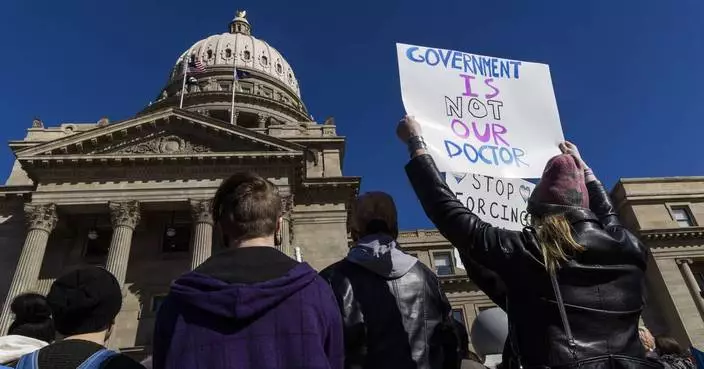
Idaho's ban on youth gender-affirming care has families desperately scrambling for solutions
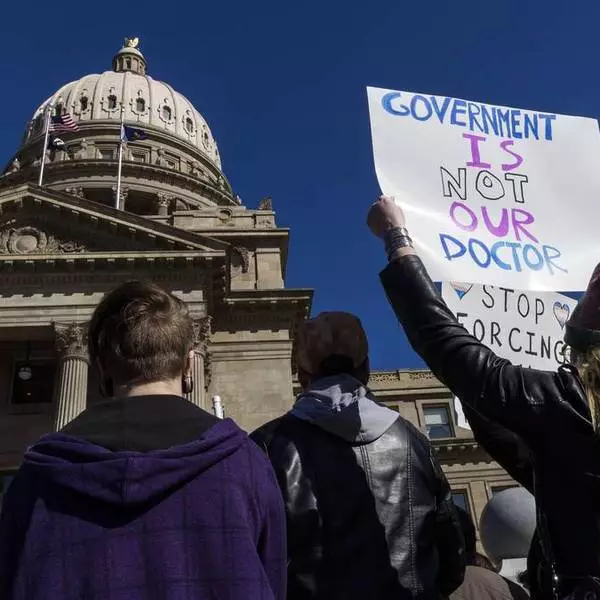
Idaho's ban on youth gender-affirming care has families desperately scrambling for solutions
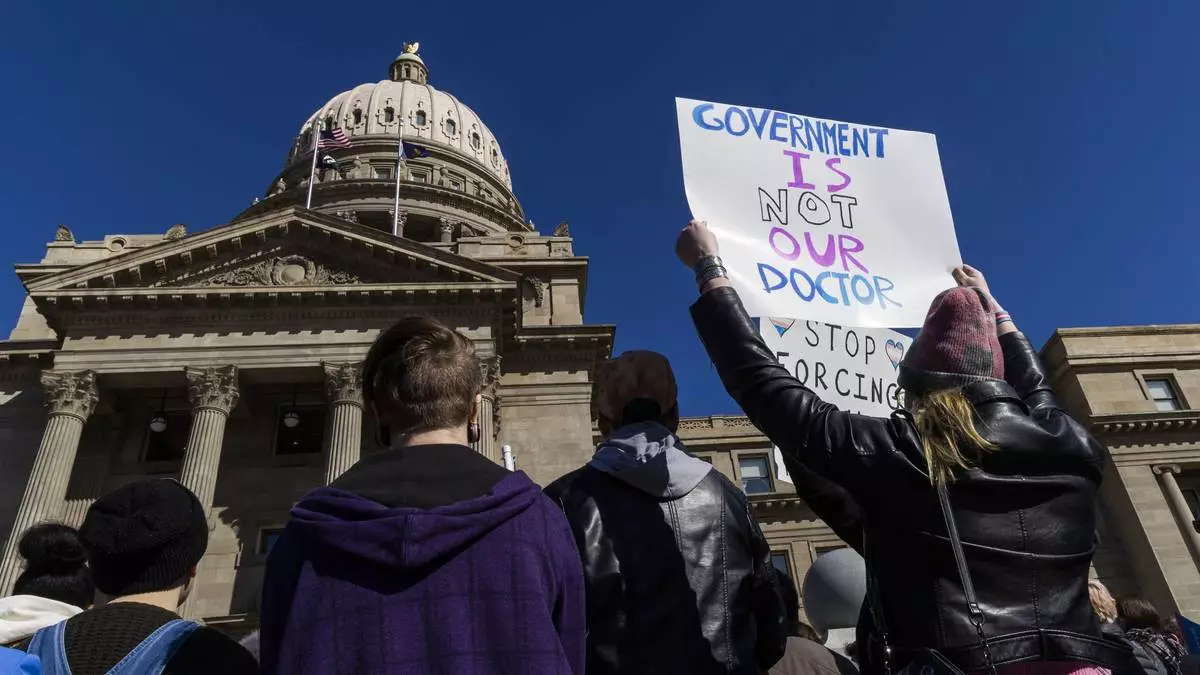
FILE - People gather in front of the Idaho Statehouse in opposition to anti-transgender legislation moving through an Idaho Republican congress, Friday, Feb. 24, 2023, in Boise, Idaho. The U.S. Supreme Court's decision on Monday, April 15, 2024, allows the state to put in place a 2023 law that subjects physicians to up to 10 years in prison if they provide hormones, puberty blockers or other gender-affirming care to people under age 18. A federal judge in Idaho had previously blocked the law in its entirety. (Darin Oswald/Idaho Statesman via AP, File)








